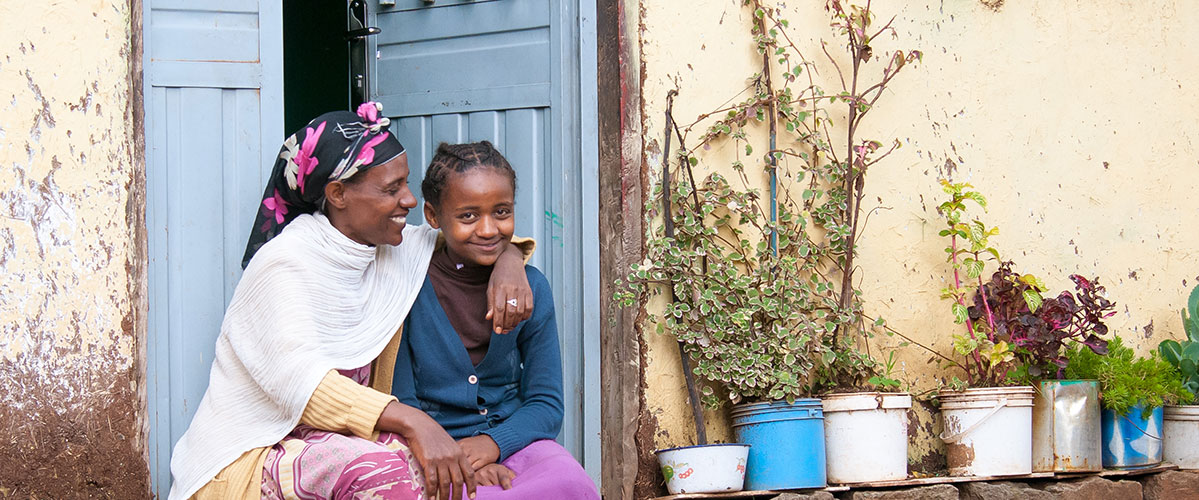Why orphanages harm children—and how your church can help

Amid decades of evidence that institutional care harms children’s physical and developmental growth, the American Church continues to build and fund orphanages.
But people who want to live out a “pure” James 1:27 religion have other options to “help orphans in their distress.”
Two hard truths
We must begin by admitting a hard truth: 90% of children who live in orphanages have at least one living parent. Surrendering their child to an orphanage is often the “best” worst option for a parent living in extreme poverty.
Another hard truth: Americans like orphanages.
- It’s easy to put together a group of 10–15 well intentioned, able-bodied people who will build them
- It’s exciting to send church groups each year to visit your investment and play with the kids who live there
- Church people will absolutely donate money toward such missional work
- Skilled construction professionals will absolutely donate time, materials, and expertise
Giving tangibly to help kids feels good, but another orphanage is not what kids need.
The harder (but more effective) solution
It’s much more difficult for a child welfare professional to come to your church and ask you to fund social workers, psychologists, and trauma-informed specialists to build a foster care system in another country.
The reality is, if you can’t donate your talent in this respect, we need you to donate your money—or donate your time to raise money—and bring more people on board.
“Really, that’s it? Write a check? But I wanted to help!”
You are helping. You’re helping kids grow up in their own families. For kids who are truly alone, you’re giving them a foster or adoptive family that will love and protect them.
Some tangible things you can do to be part of a movement toward family-based care:
- Start a Bible study group that explores better ways to approach orphan care
- Organize a 5K run to raise awareness and funds
- Volunteer to help find and vet an experienced partner that can help your church redirect your giving
We have too long believed that our service is only “valid” if we personally get our hands dirty. But we can’t all be social workers overseas. Instead of building a structure to house children apart from their families, you can invest in building capacity for family-based care. Why?
- It will multiply the impact of your investment
- It will bring training and education to strengthen families
- It will empower local families to be part of the solution
- It will give children a family {{ "resources/blogs/why-orphanages-harm-children-image-2.docx.jpg" | asset_url | img_tag }}
Changing our mindset about orphanages will change everything
Change is hard. We’re talking about more than a financial investment. Churches have a physical, emotional, spiritual, and personal investment in orphanage ministries.
A wall goes up at the suggestion of a completely different approach: “You’re telling me orphanages aren’t great. But last year, I spent two weeks of my life in Guatemala, building an orphanage. I asked all my friends to donate. That experience changed me! It changed our church! How can you say what we did was wrong?”
This conversation isn’t about guilt or shame, which aren’t productive. It’s about educating ourselves and choosing to do better when we know to do better.
Choosing to do better for kids around the world
The first priority is for children to go back into a family, whether their biological family or a foster or adoptive family in their country.
But that doesn’t mean the building your church has invested in must close; you can transition your orphanage into something else that will benefit the community—perhaps something that can actively keep a family together.
In Haiti, for example, there are 700 privately funded orphanages. Those buildings could become:
- Day schools
- Employment training centers
- Child care centers
- Community centers
- Churches
Can you trust God to take the love, prayers, and intention you’ve already invested in that facility to transform children, families, and whole communities?
This isn’t anything that happens overnight. You need a plan. You need funding. You need a partner. You need the will to see it through.
A process like this could take up to a year and tens of thousands of dollars beyond the orphanage’s daily operating cost to make the transition. Every situation would be different, with its own variables, which means no clear path from A to Z. Which automatically makes it harder to raise money for.
But it’s possible.

Enough is enough
People are doing this in Haiti. We’ve seen it in Cambodia and Ethiopia.
It takes logistics to get everyone on board, but it can be done. The Church could end institutionalization of children in our lifetime by getting behind the “no more orphanage” movement.
Or we can do nothing.
As long as the Church will send money for orphanages, there will be plenty of partners willing to help you keep building them, separating families in the process.
This is a hard conversation—this is a line-in-the-sand conversation—but you need to have this conversation with any orphan care ministry you’re supporting.
At some point we have to say enough is enough.



